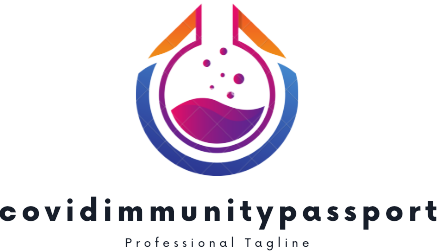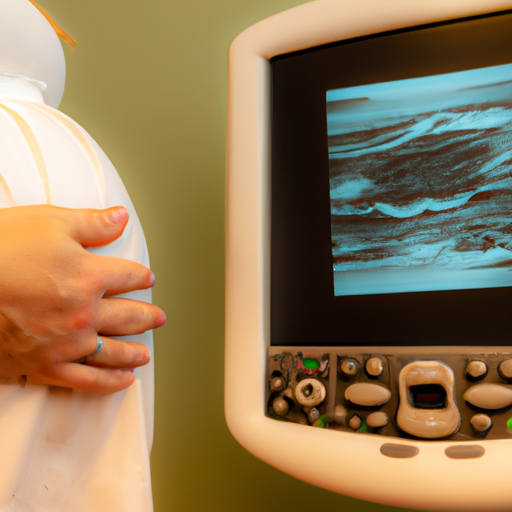Pregnancy is a beautiful and transformative journey, but it is not without its risks and complications. From the moment a woman becomes pregnant, she embarks on a remarkable and often unpredictable path filled with joy, anticipation, and, at times, worry. Understanding the risks and complications that can arise during pregnancy is essential for expectant mothers, as it allows them to take proactive steps to ensure the health and well-being of both themselves and their unborn child. In this comprehensive article, we will delve into the common symptoms and causes of pregnancy complications, explore the various diagnostic methods and treatment options available, and provide invaluable guidance on how to navigate potential risks and ensure a healthy pregnancy. By arming yourself with knowledge, you can empower yourself to make informed decisions and take necessary precautions to mitigate any potential complications that may arise along the way.
1. “Understanding the Risks and Complications of Pregnancy: Common Symptoms and Causes”
Pregnancy is a remarkable journey that brings joy and excitement to expecting parents. However, it is not without its share of risks and complications. Understanding these potential issues is crucial for expectant mothers to ensure a healthy pregnancy and delivery. In this section, we will explore common symptoms and causes of pregnancy complications, shedding light on the importance of early diagnosis and prompt treatment.
One of the most common complications during pregnancy is gestational diabetes. This condition occurs when pregnant women develop high blood sugar levels, which can pose risks to both the mother and the baby. Symptoms of gestational diabetes include excessive thirst, frequent urination, and fatigue. The exact cause of this condition is not fully understood, but hormonal changes that affect insulin production and utilization are believed to play a role. Regular prenatal check-ups and glucose screening tests can help diagnose gestational diabetes early, allowing for appropriate management and reducing potential complications.
Another significant risk during pregnancy is preeclampsia, a condition characterized by high blood pressure and damage to organs such as the liver and kidneys. Symptoms of preeclampsia include swelling (edema), sudden weight gain, severe headaches, and vision problems. The exact cause of preeclampsia remains unknown, but factors such as a history of high blood pressure, obesity, and certain medical conditions increase the chances of developing this complication. Early diagnosis through regular blood pressure monitoring and urine tests is crucial to manage preeclampsia and prevent severe complications like eclampsia and premature birth.
Placenta previa is a condition in which the placenta partially or completely covers the cervix, leading to bleeding during pregnancy. Symptoms include painless vaginal bleeding, particularly in the later stages of pregnancy. While the exact cause of placenta previa is unknown, it is commonly associated with previous cesarean deliveries, multiple pregnancies, and maternal age. Prompt diagnosis through ultrasound examinations can help determine the position of the placenta and guide appropriate treatment decisions, such as bed rest or delivery by cesarean section.
You can find out more about this theme here: https://bbgate.com/threads/synthesis-of-methylone-bk-mdma-from-catechol.25/.
2. “Diagnosing and Treating Pregnancy Complications: A Comprehensive Guide for Expectant Mothers”
Pregnancy is an exciting and joyful time for expectant mothers. However, it is important to remember that pregnancy is also a time of increased vulnerability, as there can be risks and complications that may arise. Diagnosing and treating these complications in a timely manner is crucial for the well-being of both the mother and the baby.
Diagnosing pregnancy complications often involves a combination of medical history, physical examinations, and diagnostic tests. Regular prenatal check-ups play a vital role in identifying any potential issues early on. During these check-ups, healthcare providers will monitor the mother’s blood pressure, weight gain, and check for any abnormalities in the baby’s growth and development. Additionally, various screening tests, such as blood tests and ultrasound scans, are performed to detect conditions like gestational diabetes, preeclampsia, and chromosomal abnormalities.
It is important for expectant mothers to be aware of the common symptoms that may indicate a pregnancy complication. These symptoms can vary depending on the specific complication but may include persistent abdominal pain, severe headaches, vaginal bleeding, reduced fetal movement, and excessive swelling in the hands, feet, or face. If any of these symptoms arise, it is crucial to seek immediate medical attention.
Once a pregnancy complication is diagnosed, appropriate treatment measures can be implemented. The treatment plan will depend on the specific complication and its severity. In some cases, lifestyle modifications, such as changes in diet and exercise, may be sufficient to manage the condition. However, more serious complications may require medication, medical procedures, or even surgical interventions.
For instance, if preeclampsia is diagnosed, a condition characterized by high blood pressure and organ damage, the expectant mother may need to be hospitalized for close monitoring. Medications may be prescribed to lower blood pressure and prevent seizures. In severe cases, early delivery of the baby may be necessary to protect the health of both the mother and the baby.
It is essential for expectant mothers to maintain open and honest communication with their healthcare providers throughout the pregnancy. Regular prenatal visits provide an opportunity to discuss any concerns or questions regarding potential complications. By being proactive and vigilant, expectant mothers can help ensure that any complications are diagnosed and treated promptly, reducing the risks to both themselves and their babies.
In conclusion, while pregnancy is a beautiful journey, it is not
3. “Navigating Potential Risks: How to Ensure a Healthy Pregnancy and Reduce Complications”
Pregnancy is a beautiful and transformative journey for a woman, but it is not without its risks and complications. While every pregnancy is unique, there are certain steps that expectant mothers can take to navigate potential risks and ensure a healthy pregnancy.
First and foremost, it is crucial for women to schedule regular prenatal check-ups with their healthcare provider. These check-ups allow medical professionals to monitor the mother’s health and the development of the baby closely. Through various diagnostic tests, such as ultrasound scans and blood tests, potential complications can be detected early on. This early detection enables medical professionals to provide timely treatment and interventions, reducing the risk of complications.
Maintaining a healthy lifestyle is another important aspect of ensuring a healthy pregnancy. This includes eating a balanced diet rich in fruits, vegetables, whole grains, and lean proteins. A well-nourished body is better equipped to handle the physical demands of pregnancy and reduce the risk of complications. It is also essential to avoid harmful substances like alcohol, tobacco, and illegal drugs, as they can negatively impact both the mother’s and the baby’s health.
Regular exercise is also beneficial during pregnancy, but it is essential to consult with a healthcare provider before starting any exercise regimen. Moderate physical activity, such as walking or swimming, can improve circulation, reduce the risk of gestational diabetes, and help maintain a healthy weight. However, certain high-impact or contact sports should be avoided to prevent injury and complications.
Stress management plays a vital role in promoting a healthy pregnancy. High levels of stress can have adverse effects on both the mother and the baby. Engaging in relaxation techniques like meditation, deep breathing exercises, or prenatal yoga can help alleviate stress and promote emotional well-being. Seeking support from loved ones and joining prenatal classes or support groups can also provide a sense of community and reassurance during this transformative time.
Educating oneself about the various symptoms and warning signs of potential complications is crucial for expectant mothers. Being aware of symptoms such as severe abdominal pain, vaginal bleeding, severe headache, or sudden swelling can prompt immediate medical attention. Prompt diagnosis and treatment can make a significant difference in managing complications and ensuring a healthier outcome for both mother and baby.
Ultimately, the key to navigating potential risks during pregnancy is open communication with healthcare providers. It is essential for expectant mothers to express any


